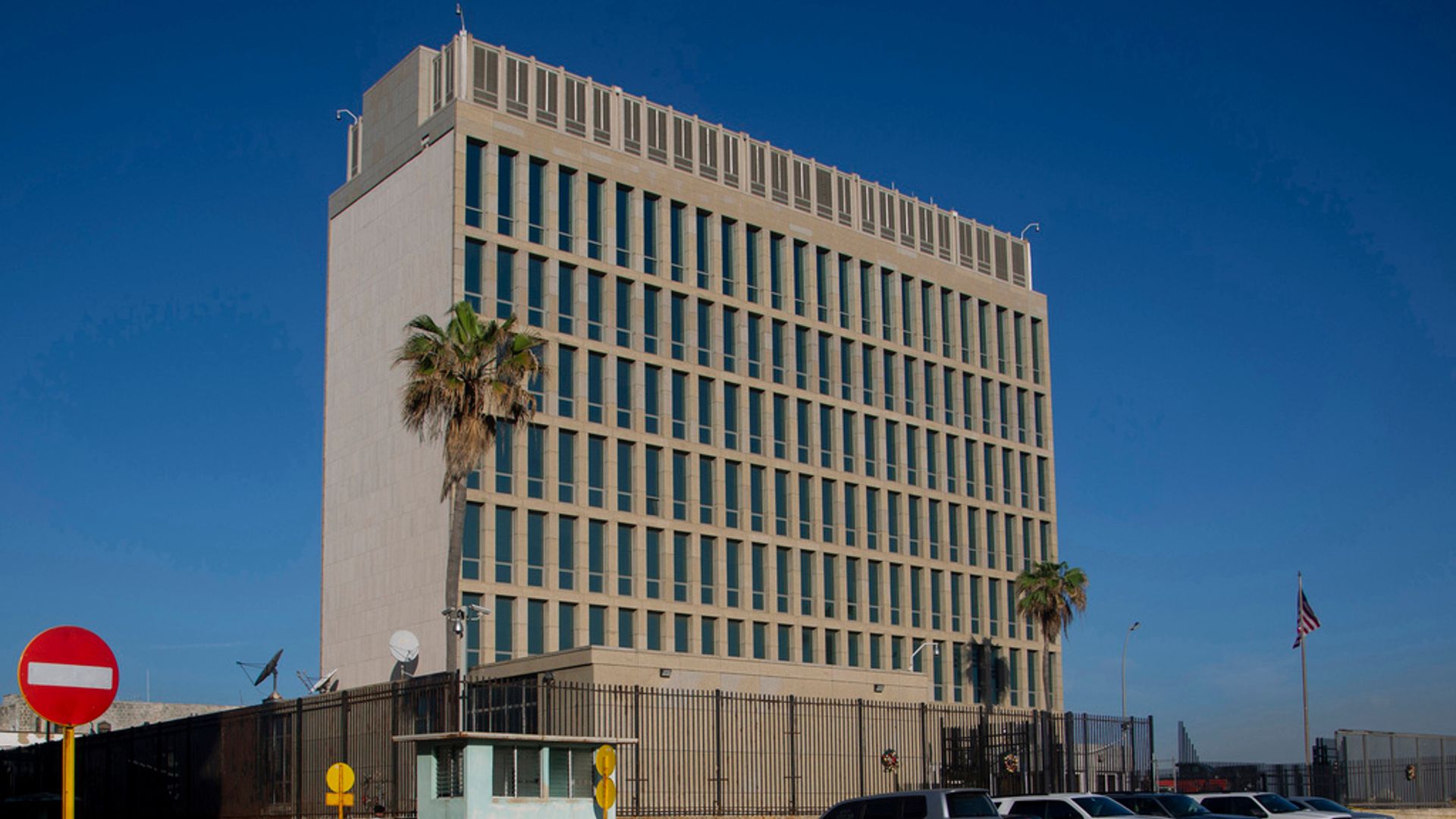The mysterious “Havana syndrome” has affected US diplomatic staff in almost 100 countries – and a new intelligence report says it is likely a “foreign adversary” is to blame.
But what is Havana syndrome?
Sky News looks at the symptoms, who has been affected, and the new information in the US government’s report.
What is Havana syndrome?
The condition was first reported in 2016 when US diplomatic staff at the embassy in Cuba’s capital Havana reported symptoms including headaches, ringing in the ears and cognitive dysfunction.
Since then people suffering from the illness have reported headaches, memory lapses, nausea, dizziness and other symptoms often linked to traumatic brain injuries.
Those affected noted bizarre sounds and sensations followed by unexplained illnesses and symptoms.
Who has been affected?
More than 1,500 US officials in 96 countries have said they have experienced Havana syndrome.
Symptoms have been reported by embassy staff in China, Europe and the US capital Washington DC.
Several theories have been put forward to explain the cause of the illness, including the possibility of a hostile state using a type of directed energy weapon involving soundwaves or the mysterious phenomena of mass psychogenic illness – otherwise known as mass hysteria.
What does the latest report say?
It “appears increasingly likely that a foreign adversary is behind some” cases of Havana syndrome, according to a report by the US House Permanent Select Committee on Intelligence.
The report said a total of 334 American officials have qualified for care for what it referred to as “anomalous health incidents [AHIs]”.
It also criticised the US intelligence community’s assessment of the syndrome, saying it “lacked analytic integrity and was highly irregular in its formulation”.
Follow our channel and never miss an update.
What did the US intelligence community reports say?
In 2022 the CIA released an interim assessment concluding the syndrome was not the result of “a sustained global campaign by a hostile power”.
It ruled out foreign involvement in 976 of the 1,000 cases it reviewed, saying it could not rule it out in the remaining cases.
An unclassified version of a report compiled by seven US intelligence agencies and published in March last year added the involvement of a foreign adversary was “very unlikely”.
But US representative Rick Crawford, who led the latest investigation, said: “Sadly, the [intelligence community] has actively attempted to impede our investigation, but we have nonetheless been able to gather significant evidence, and I have reason to believe that its claims of environmental or social factors explaining AHIs are false.”
Please use Chrome browser for a more accessible video player
Could a Russian intelligence unit be behind the condition?
US diplomats who suffered Havana syndrome may have been targeted by Russian sonic weaponry, according to a five-year joint media investigation published earlier this year.
The joint report by The Insider, Der Spiegel and CBS’s 60 Minutes suggested a shadowy Russian intelligence unit may be involved.
They reported that senior members of Unit 29155 had received awards and promotions for work related to the development of “non-lethal acoustic weapons”.
Be the first to get Breaking News
Install the Sky News app for free
What did Russia say?
Moscow dismissed the allegations as “groundless”, with Kremlin spokesperson Dmitry Peskov saying: “For many years the topic of the so-called ‘Havana syndrome’ has been exaggerated in the press, and from the very beginning it was linked to accusations against the Russian side.
“But no one has ever published or expressed any convincing evidence of these unfounded accusations anywhere. Therefore, all this is nothing more than baseless, unfounded accusations by the media.”
What other theories are there?
Some other studies have suggested a mass psychogenic illness, which sees symptoms spread through a population without a contagion, might be behind Havana syndrome.
They suggested the stress of working overseas in hostile or unfriendly countries, where the job often involves anxiety about potential surveillance, could have been a factor.







